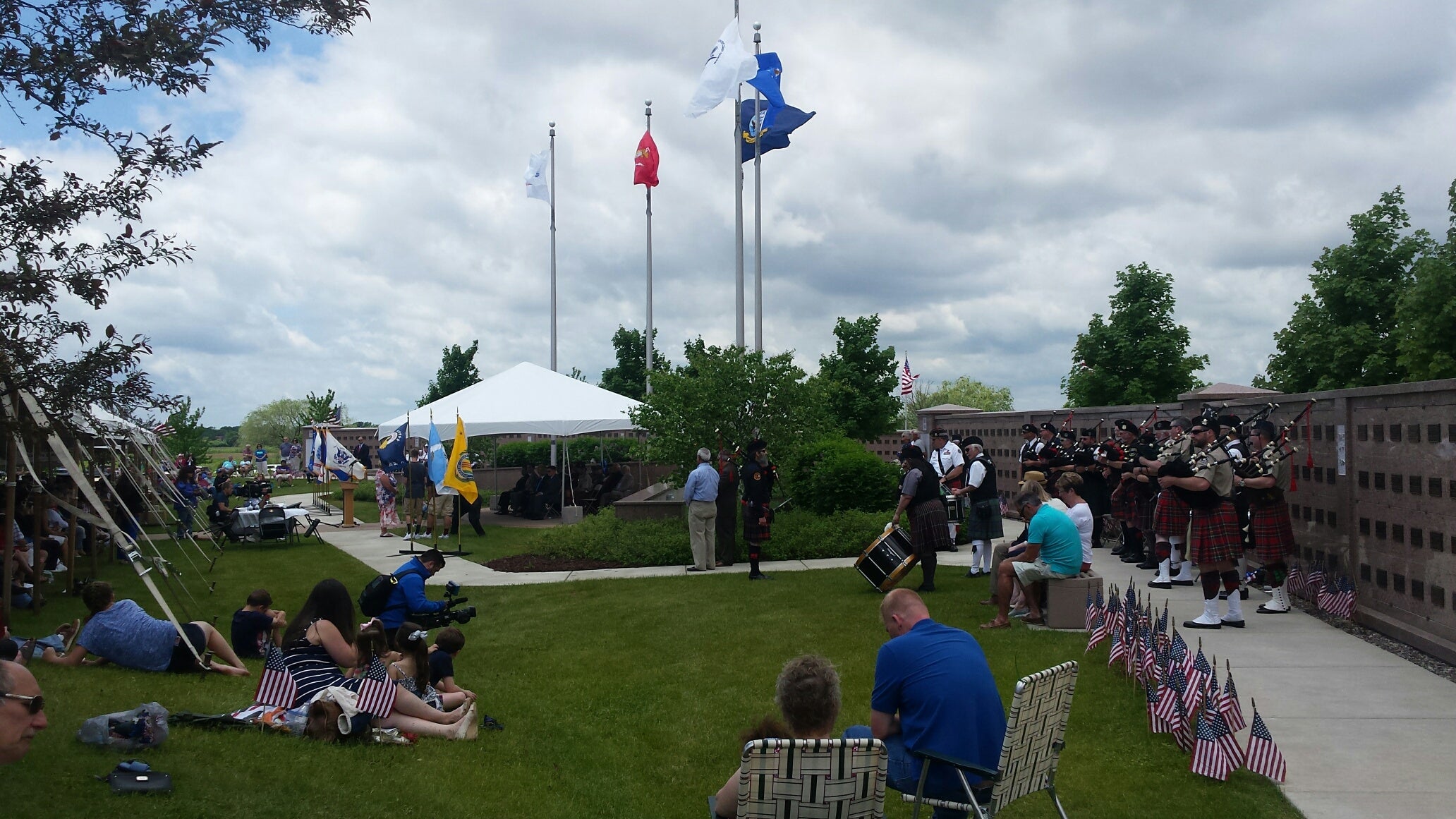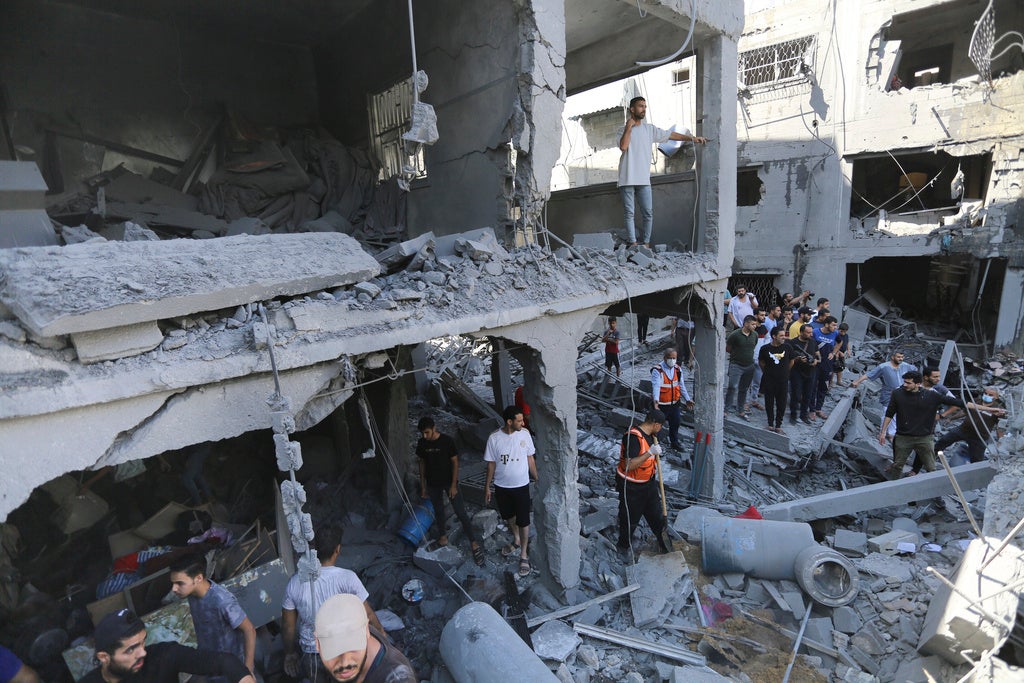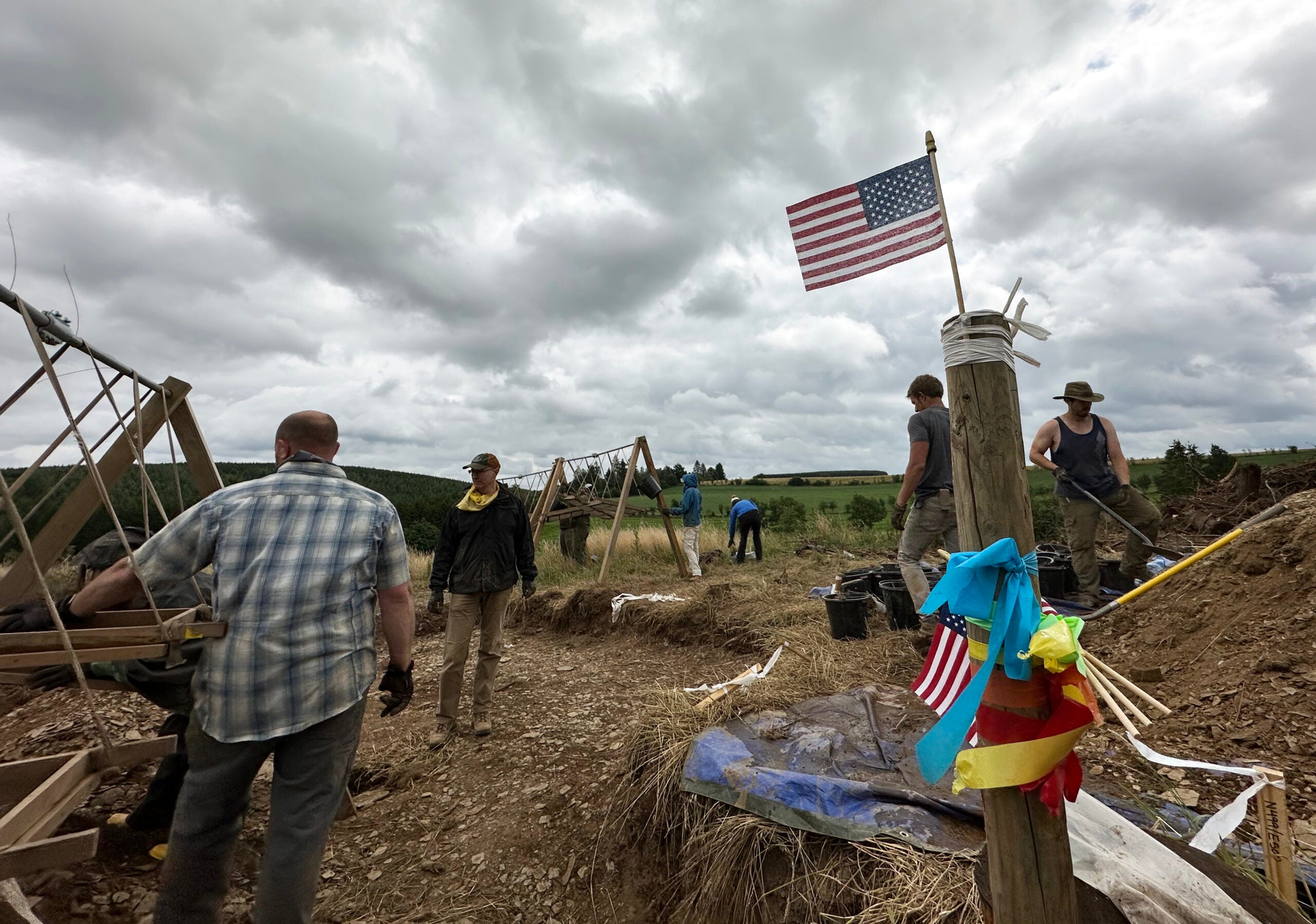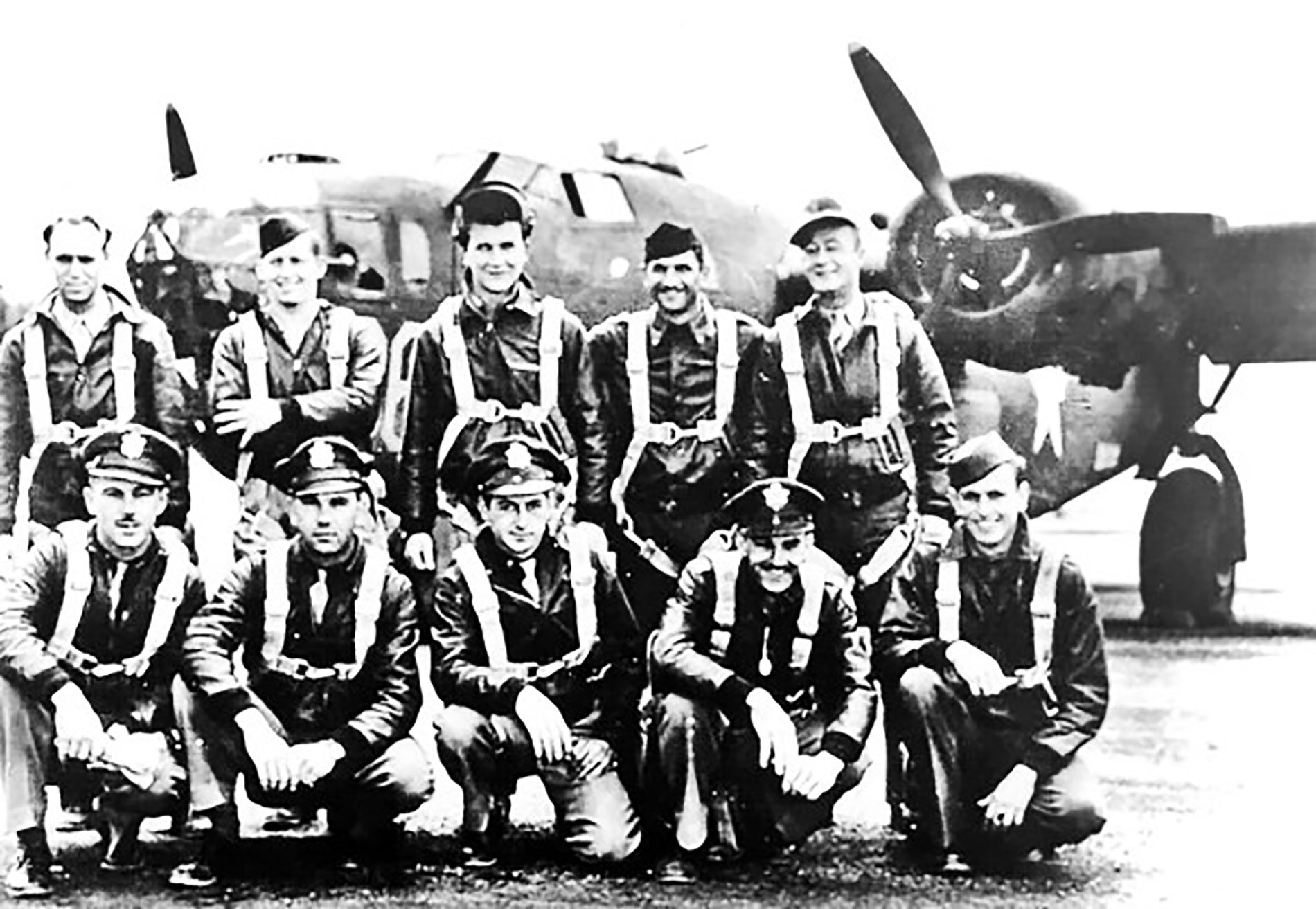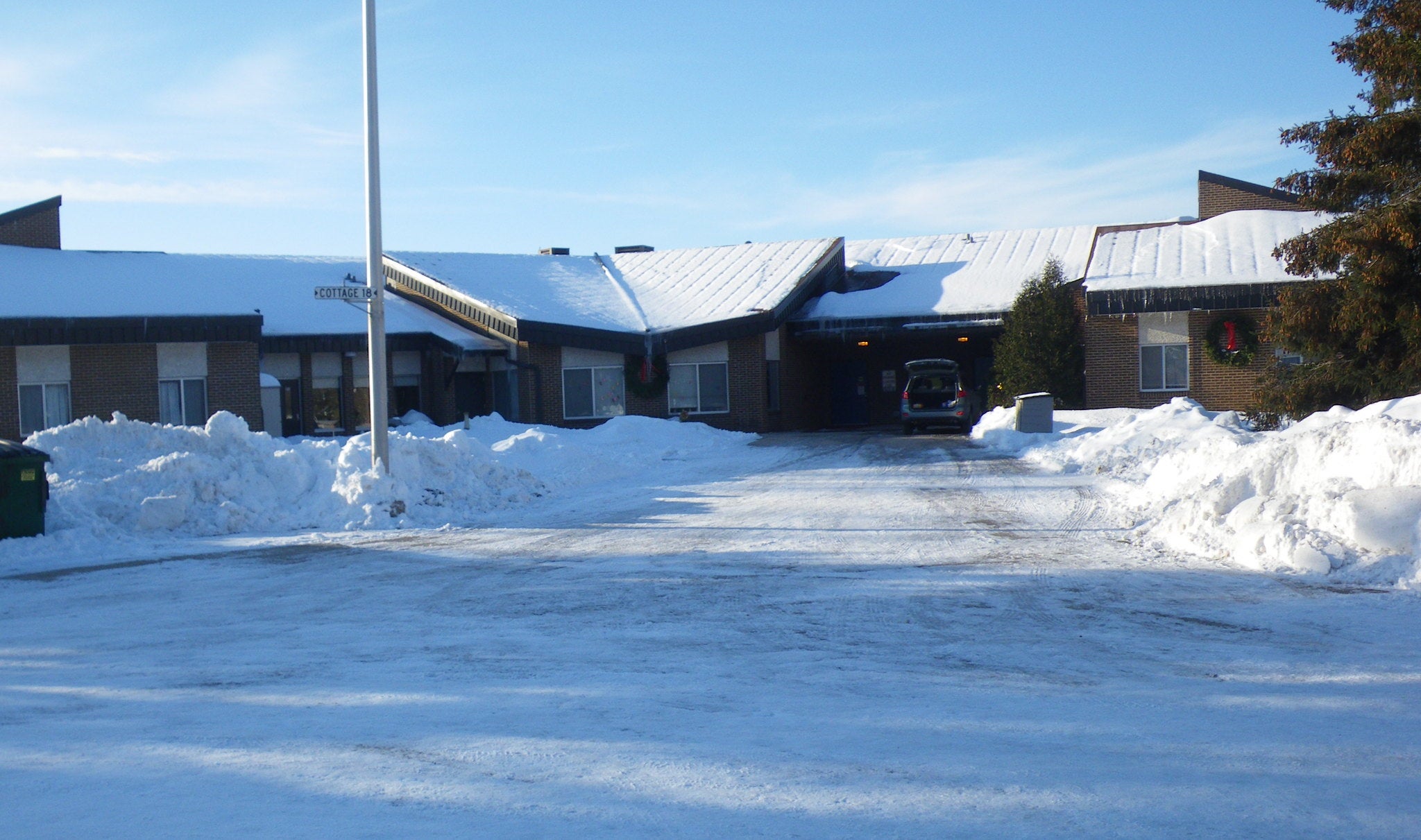The Wisconsin Department of Veterans Affairs continued its Memorial Day-related ceremonies at state of Wisconsin cemeteries with an event on Monday at the Central Wisconsin Veterans Memorial Cemetery in King.
There were similar events on Saturday at the Northern Wisconsin Cemetery near Spooner and on Sunday at the Southern Wisconsin Cemetery in Union Grove.
The Union Grove ceremony this weekend included speeches by Gov. Scott Walker and U.S. Sen Tammy Baldwin, D-Wis., marking 20 years since ground was broken for the Southern Cemetery.
Stay informed on the latest news
Sign up for WPR’s email newsletter.
The event also offered a look at the quickly rising number of veterans, spouses and dependents who are in their final resting place there. According to the DVA, the Southern Cemetery is the fifth-busiest state cemetery in the U.S., averaging more than 1,000 services annually. There have been more than 15,250 interments at the site. Another 10,700 veterans have pre-registered for burial there.
DVA Secretary John Scocos said that capacity at the Southern Cemetery is about 26,000, so state officials recently completed preliminary work on an expansion plan.
“Strategically, North, Central and South, we believe we’re taking care of the needs of our veterans. We’re always looking at how we can make the facilities better,” he said.
Many more Wisconsin veterans are expected to pass away over the next decade, but Scocos brushed off the idea of veterans, their spouses and dependents someday having difficulty being buried at one of the three sites.
“No, not at all. We believe we not only have the capacity, but we want they are interring shrines, after they are filled later on — 30-40 years, so we’re planning for that, too, working with the communities, because we want to make sure these places are a place where family members can come and see their loved ones,” he said.
Scocos said the federal government paid 65 percent of the cost of the newer cemeteries at Union Grove and Spooner. When it comes to continuing operational costs, the state receives burial honor payments for each veteran interred.
“Our biggest concern,” Scocos said, “is making sure the federal government and state government can continue to fund these for the future. We have to be vigilant with our federal counterparts.”
Scocos said there might be a lot of partisanship in politics.
“Everybody believes to honor those and their family members in service,” he said.
However, that commitment might be tested in the decades ahead with only a small percentage of U.S. residents in the military.
Wisconsin Public Radio, © Copyright 2024, Board of Regents of the University of Wisconsin System and Wisconsin Educational Communications Board.

